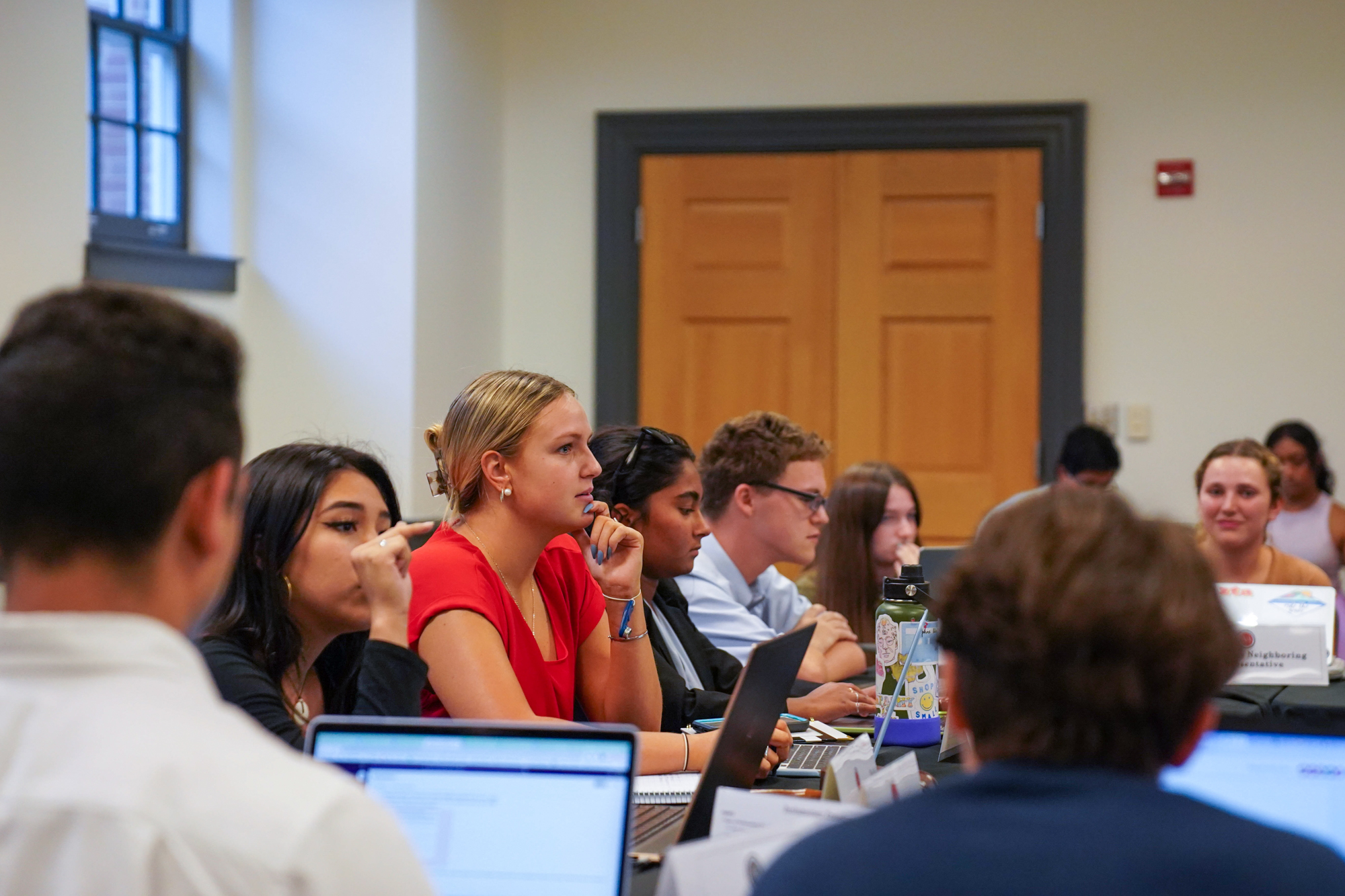University of Maryland Police Chief David Mitchell gave updates about student mental health and campus safety at Wednesday’s SGA meeting.
Student mental health is a major concern, and UMPD is training its officers in how to engage with students in crisis, Mitchell said. Mental health of university students is a nationally prevalent issue — since students have returned to campus, UMPD has been receiving almost one call a day from students struggling with serious mental health issues, he said.
“We’re here to help you get the help you need,” Mitchell stressed.
Student Government Association members also asked several questions regarding student and campus safety. Paisley Brockmeyer, Heritage representative and sophomore biological sciences major, asked whether Public Emergency Response Telephones — blue light, toll-free phones located around the campus that connect students with campus police — previously reported broken had been fixed.
[UMD SGA President Ayelette Halbfinger outlines priorities for this fall semester]
Mitchell told legislators that part of officers’ ongoing work is ensuring these phones are working, and the police keep their eyes out for broken ones. He noted students can also report them to the police.
Some campuses across the country are removing the blue light phones due to most students having cell phones nowadays, Mitchell said. However, the University of Maryland will keep the blue light phones because cell phones can sometimes be unreliable.
Another safety measure in place is ShotSpotter technology which picks up on the sounds of gunshots and alerts the police, usually quicker than 911 calls, Mitchell said. Currently the technology is only located on some parts of the campus, but it will be expanded to all of the campus soon.
Emily Wilson, a junior elementary education major who represents the education college, asked Mitchell if the ShotSpotter technology will be installed in the Old Town neighborhood and near the College Park Metro station.
“There’s a lot of people that come in and out of the Metro that are not affiliated with the college,” she said. “Walking through Old Town at night can be very scary.”
[UMD SGA committee focuses on student voters ahead of midterm election]
Mitchell responded that the City of College Park is interested in the initiative and is working on a way to implement it.
Campus police also deal with sexual misconduct incidents. Mitchell assured students the police will treat survivors with respect and care if they come forward to report sexual misconduct.
“The challenge on our campus, and every campus for that matter, is that [sexual misconduct] is underreported,” Mitchell said. “We’re on your side.”
Alexandra DeBus, a junior biochemistry major who serves as the SGA’s executive vice president, arranged for Mitchell to speak with the legislature — her goal was to make the university police more accessible to SGA members.
“[Mitchell] can give [legislators] insights as to how UMPD works … [so] that these student leaders can reach the leaders in their community,” she said.



